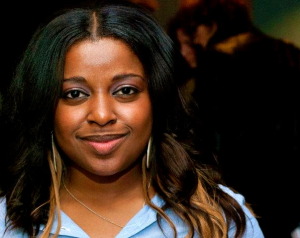by Nic Custer
The University of Michigan-Flint campus is larger than just UCEN, French Hall and the Murchie Science Buildings. The campus stretches north of the Flint River including the William S. White building and the Northbank Center, which contains the dance studio, University Outreach and the Innovation Incubator, also known as [IN], located on the building’s second floor.
The following is a top ten list of opportunities and activities available Monday through Friday, nine a.m. to five p.m. for students:
Ten.
Use the foam cubes to create a desk, fort, throne, tower, podium and any other cool configuration you can think of for maximum productivity or relaxation.
Nine.
Lounge on the blue couch and watch cable television on the wall-mounted flat screen. The 54” smart television is also connected to the internet and can be used for Skype or just catching up on sports and world news.
Eight.
[IN] has a large reference library of business- related books and magazines available for browsing.
Sections labeled “Sales and Marketing,” “Legal,” “Budget and finance,” “Start ups,” “Leadership and management” and many more cover the full spectrum of business development and document templates.
A selection of current and back issues from various Michigan and business magazines also fill the shelves including: Fast Company, Wired, dBusiness, Stanford Social Innovation Review, Yes!, FCW, Crain’s Detroit Business and Inc.
Seven.
The co-working space, NBK 207, is open to both students and community members. It can hold meetings of between 4 and 24 people and is the perfect downtown location for start up businesses looking to meet with perspective clients in a professional setting. It is also a great place to work with other entrepreneurs and develop the next great idea!
Space may be reserved through the staff working in the incubator.
Six.
Bring your laptop! [IN] offers WiFi through the university’s MWireless and has plenty of Herman Miller ergonomic Caper chairs to help create a productive atmosphere for guests.
Five.
Have a drink! The space also provides a selection of Keurig coffees, hot chocolates and teas, soda pop and a water cooler. Guests are welcome to help themselves to a drink, although there is a suggested donation of .50 cents per item for additional drinks to allow the staff to purchase more items when the stock runs out.
Four.
Stay for a workshop, [IN] provides a free series of business- related workshops during the academic year to support students and the community.
Past workshops have included accounting skills, social innovation, women entrepreneurs and many more topics from speakers with years of experience. Registration is recommended as space is limited.
Three.
[IN] is able to provide a downtown mailing address to student businesses to give them a secure professional setting to receive letters and packages and send mail from.
Two.
One of the most important services the Innovation Incubator offers to start up organizations is business plan development assistance.
Utilizing the business model canvas (taken from the Business Model Generation book by A. Osterwalder and Y. Pigneur, which is available in the reference library) businesses work with [IN] staff to storyboard their target goals, audiences and products allowing them to better realize how to make their business ventures financially successful.
One.
Of course, the best thing for students to do in the incubator is to sign up for free office space and begin their journey towards realizing their business aspirations!
[IN] offers office space on the Northbank Center’s second floor and a huge number of resources and networks to draw from.
All prospective businesses should first fill out the Tell Us Your Bright Idea form, which is sent to the program coordinator, Sara McDonnell. Sara will contact applicants for a one-on-one meeting so the business’s space and technical support needs can be identified.
All students and recent graduates are invited to bring their ideas for a start up and let the Innovation Incubator help them develop the next great product or service.
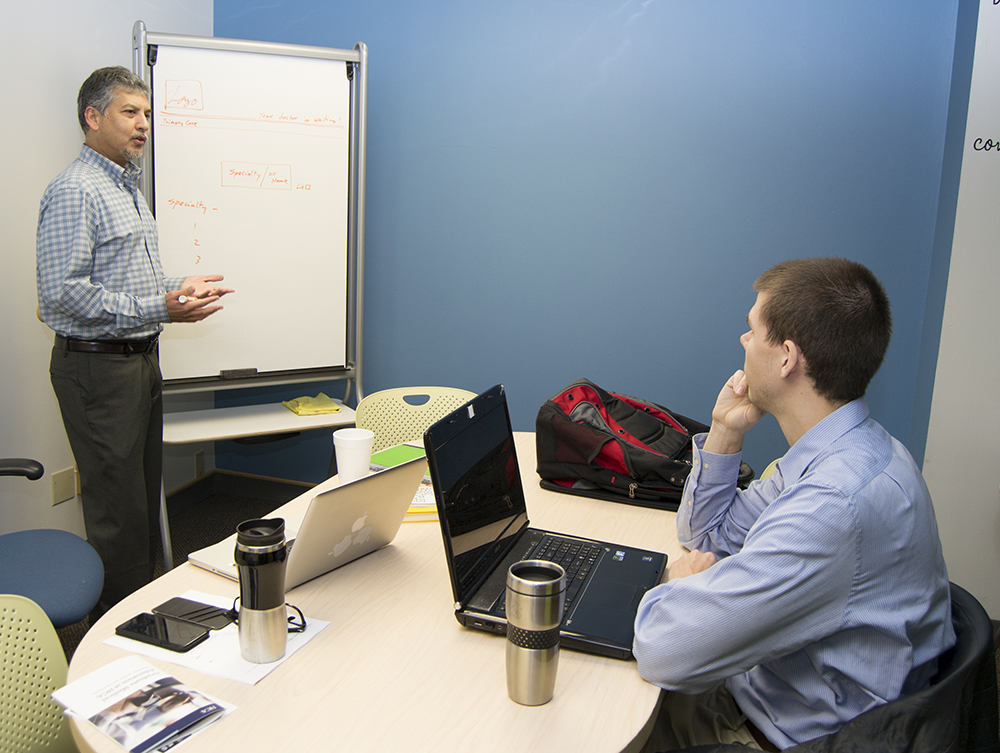
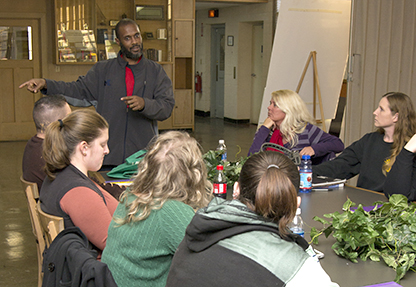
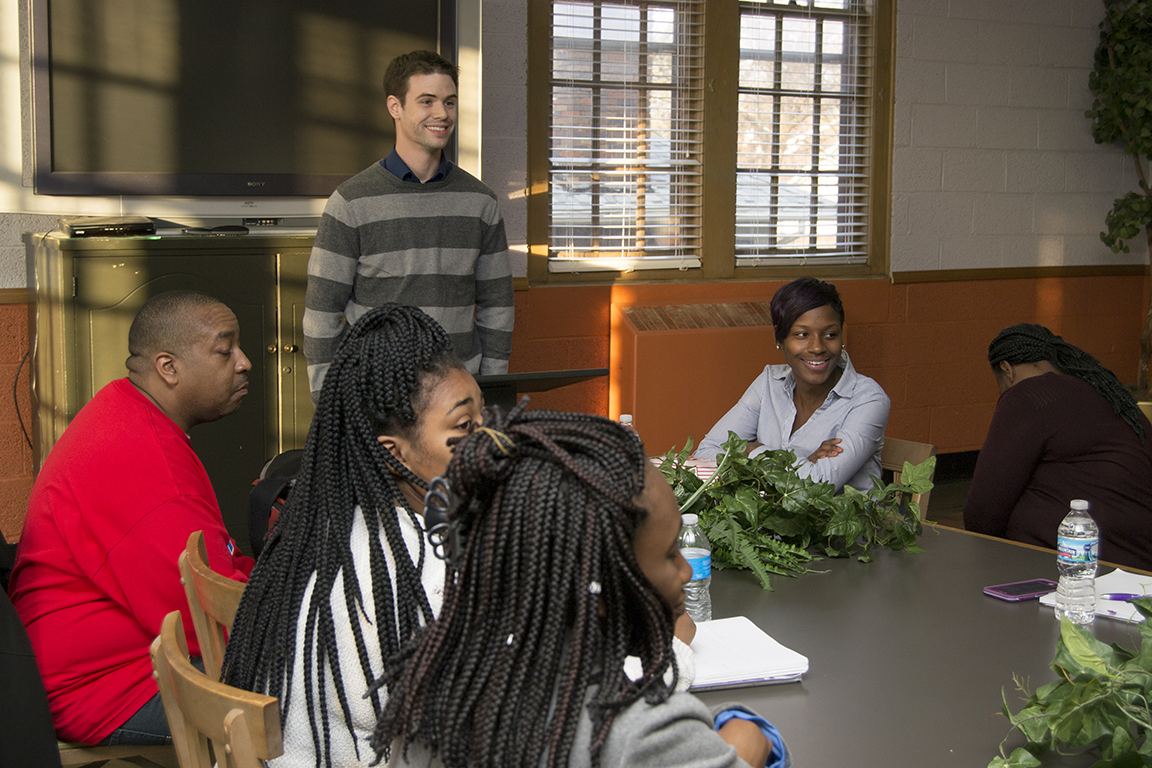
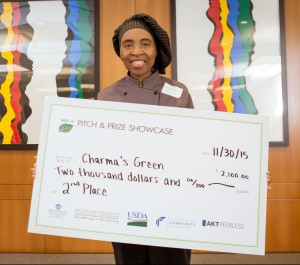
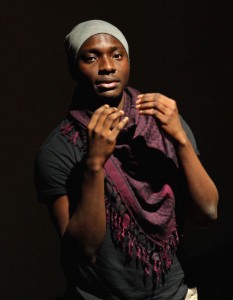
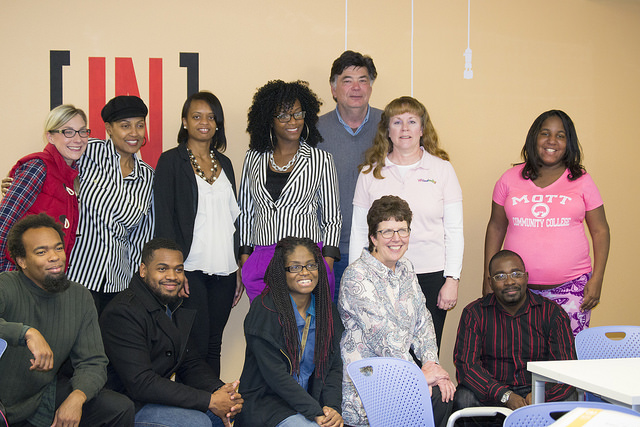
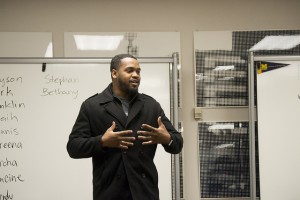 The program was brought to campus through a partnership with Grand Valley State University’s
The program was brought to campus through a partnership with Grand Valley State University’s 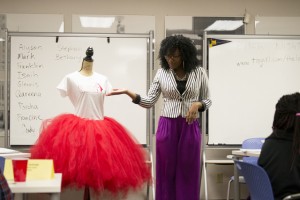
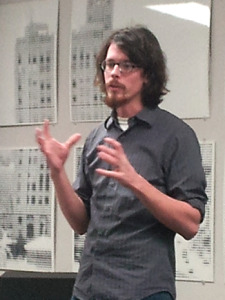 This is the central premise behind a so called “elevator pitch.” Flint residents will have two opportunities to pitch their big ideas in early 2015. First, UM-Flint’s School of Management is holding a Business Plan Competition to celebrate its 40th anniversary. The winning student or alum will receive a $5,000 grand prize. The second competition, sponsored by Michigan State University’s Spartan Innovations, is called Greenlight Flint. This competition is open to anyone in the community as long as their business is less than one year old. The grand prize will also be $5,000 but there will be an additional $5,000 in prizes for second place, third place and crowd favorite. First place will also receive automatic entry to the statewide Greenlight Michigan competition in East Lansing to compete for a $25,000 prize.
This is the central premise behind a so called “elevator pitch.” Flint residents will have two opportunities to pitch their big ideas in early 2015. First, UM-Flint’s School of Management is holding a Business Plan Competition to celebrate its 40th anniversary. The winning student or alum will receive a $5,000 grand prize. The second competition, sponsored by Michigan State University’s Spartan Innovations, is called Greenlight Flint. This competition is open to anyone in the community as long as their business is less than one year old. The grand prize will also be $5,000 but there will be an additional $5,000 in prizes for second place, third place and crowd favorite. First place will also receive automatic entry to the statewide Greenlight Michigan competition in East Lansing to compete for a $25,000 prize.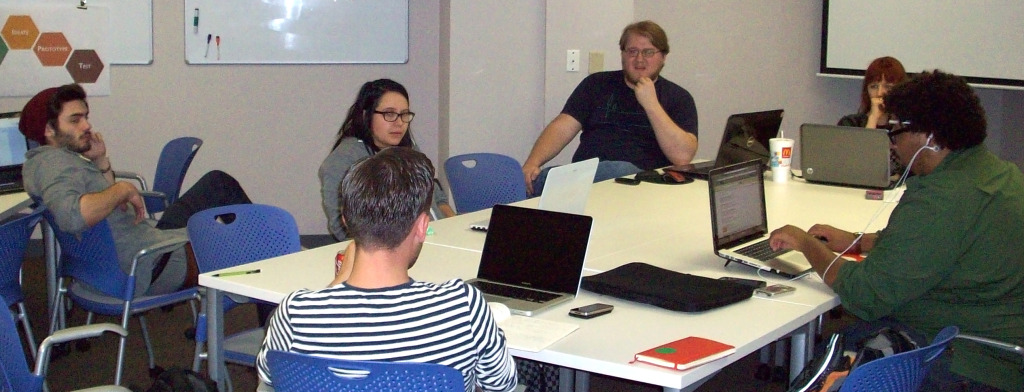 A group of seven students, led by Lecturer Andrew Morton, are completing a new play to be performed this Fall as part of the UM-Flint Theatre and Dance Department’s main stage season.
A group of seven students, led by Lecturer Andrew Morton, are completing a new play to be performed this Fall as part of the UM-Flint Theatre and Dance Department’s main stage season.